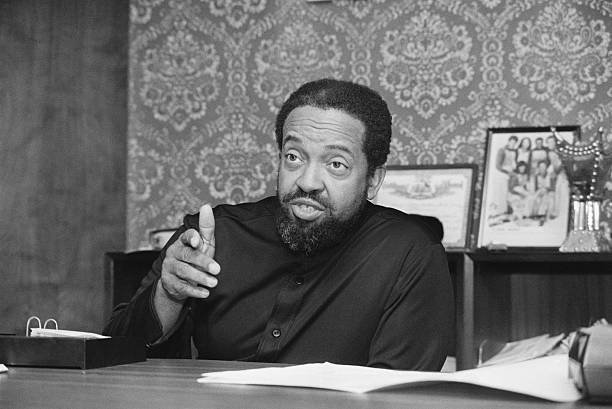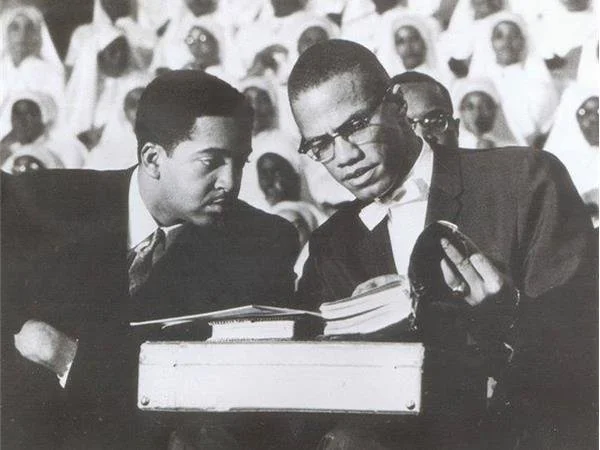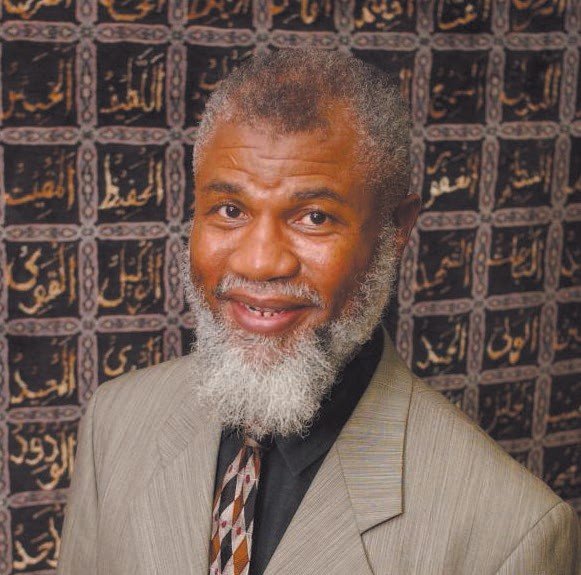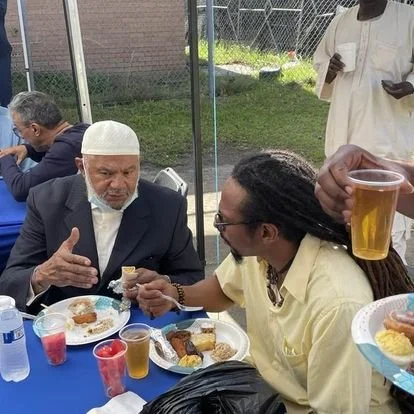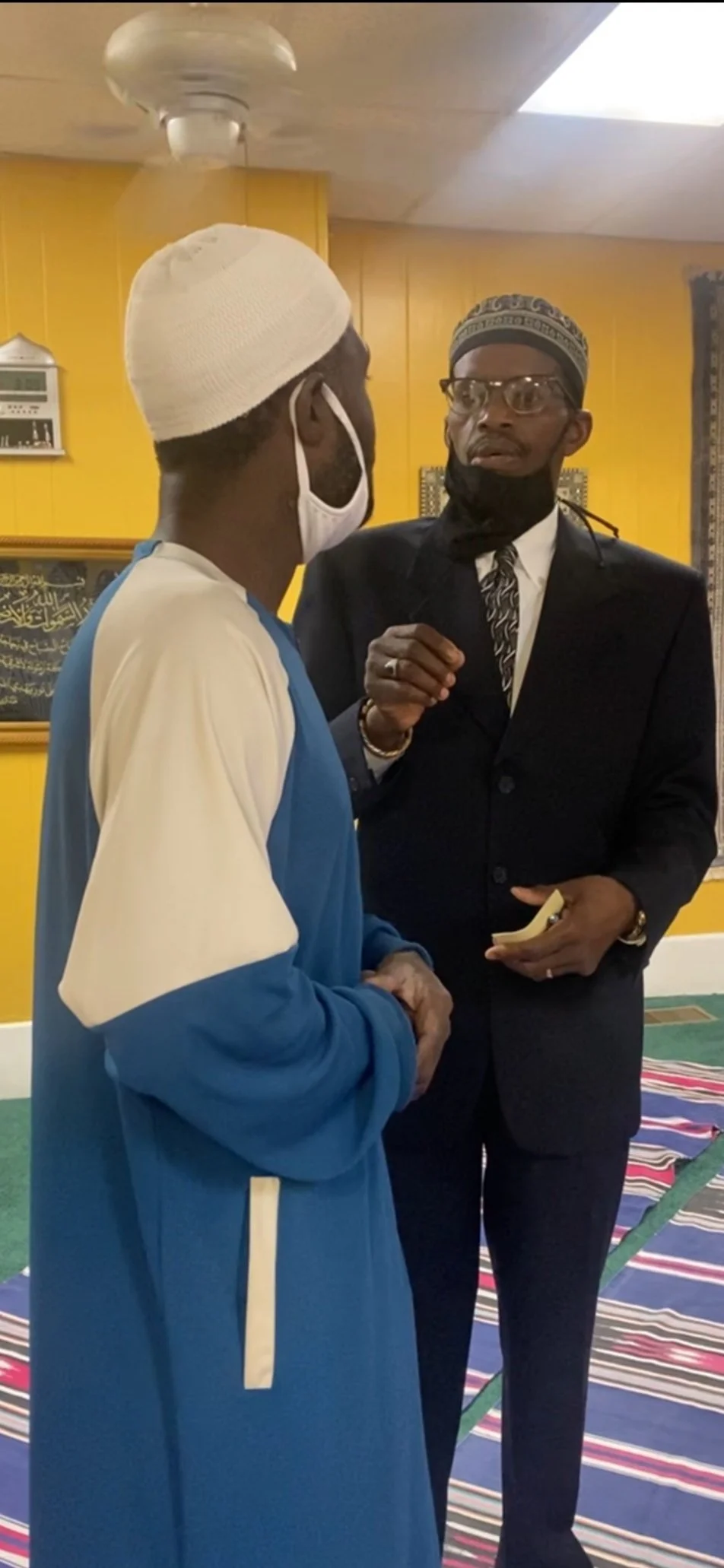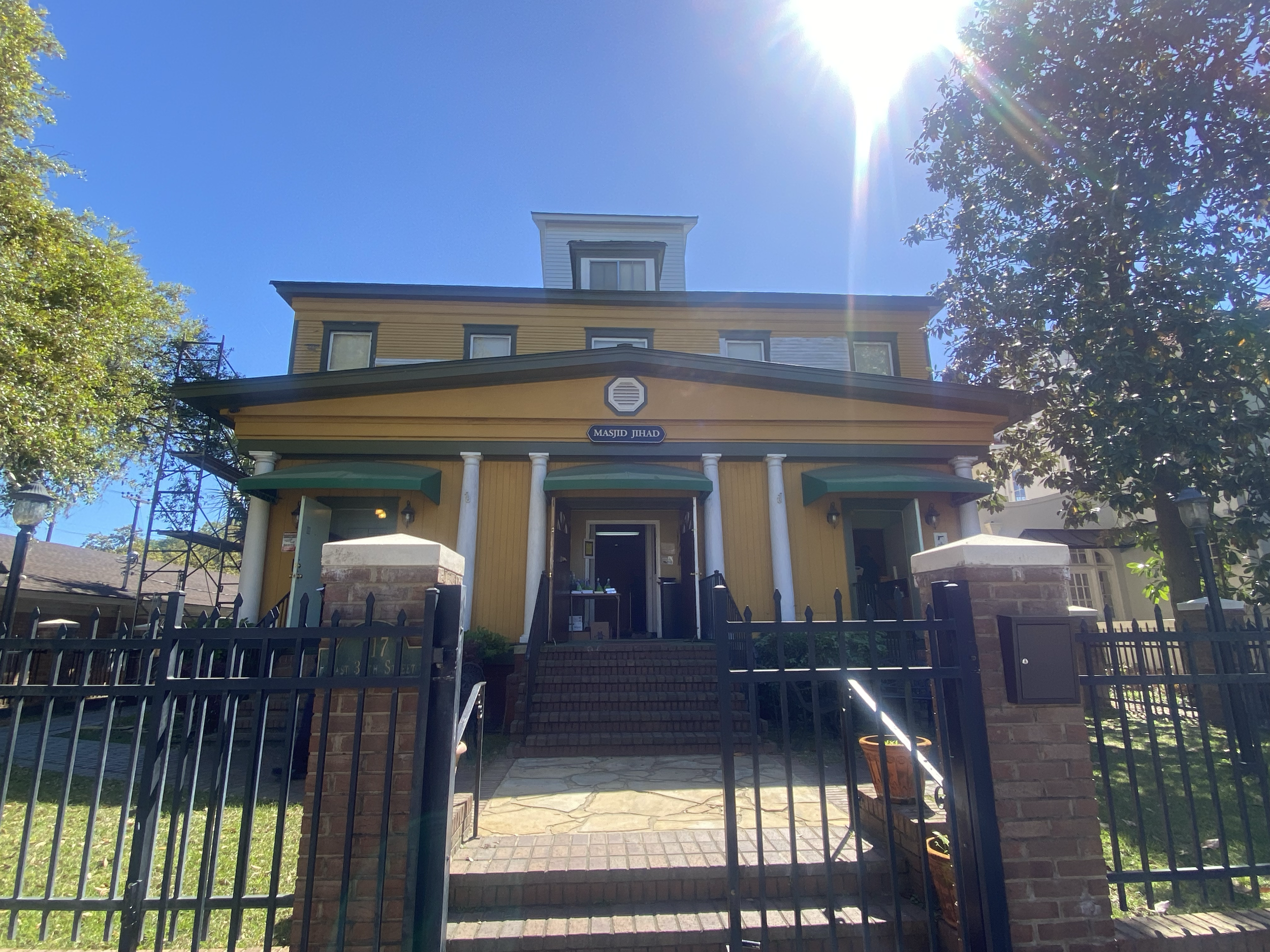The origins of Masjid Jihad in Savannah, Georgia, trace back to the late 1960s, when
local Muslims organized under Mohammed's Temple of Islam, a part of the Nation of
Islam (NOI). Led by early ministers and supported by members of the Fruit of Islam
(FOl) and the Muslim Girls Training and General Civilization Class (MGT-GCC), the
community evolved through a transformative era. Under the guidance of Imam Wallace
Deen Mohammed, it transitioned from the Nation of Islam framework to a Qur'anic-
based Islamic practice, laying the foundation for a lasting Islamic presence in Savannah
and the eventual establishment of Masjid Jihad.
Throughout the 1970s, the growing Muslim community built what would become a
significant religious and cultural institution in the city. From 1970 to 1971, Mohammed's
Temple of Islam held services at a location in the 1200 block of Barnard Street led by
Samuel 2X Franklin. During this time, the community faced significant challenges,
including a police altercation involving FOl members, Ezekial X Walker, Eric X Walker,
Ronald X Flagg, and Reedy X Cooper. This event led to a public forum on police
brutality featuring Minister Abdul Rahman at Savannah State College (University).
By spring 1972, Reginal X Toby (Omar Abuwi) emerged as a key figure, ultimately
becoming the temple's captain. His charitable efforts earned thanks from The
Honorable Elijah Muhammad. In late 1973, the temple moved to 509 Barnard Street,
with Grant X Ellison appointed as minister. From 1974 to 1983, the temple acquired
and renovated a Victorian-era house at 117 E. 34th Street, establishing what would later
become Masjid Jihad, its worship and community hub.
In August 1974, teachings from The Honorable Elijah Muhammad and his national
representative, Minister Louis Farrakhan, began airing on WSOK radio in Savannah.
These b r o a d c a s t s continued under Imam Wallace Deen M o h a m m e d after The
Honorable Elijah Muhammad's passing in 1975. That same period saw the launch of
two business funded by local donations and volunteer labor: the "Steak and Take"
restaurant at 1015 West 50th Street, which later became "Shabazz Restaurant" on
Harmon Street.
In December 1974, the temple's key officials, Minister Grant X Ellison, Captain Reginal
X Toby, and Secretary Marvin X Castle (Maajid Faheem 'Ali) attended a pivotal regional
meeting in Atlanta, where Minister Wallace Deen Mohammed gave a historic transitional
address. In 1975, after The Honorable Elijah Muhammad's death, the leadership of the
NOI passed to Wallace Deen Mohammed, and the temple was renamed Mohammed's
Mosque No. 81. Later that year, Minister Grant X Ellison was reassigned, succeeded
by Minister Ahmad Kareem, who resigned in 1976. Marvin X Castle (Maajid Faheem
'Ali) was then unanimously elected as Imam, marking the mosque's transition into
Masjid Mohammed No. 81.
In 1977, masjid expanded its mission to include prison ministry serving incarcerated
persons at Georgia State Prison (Reidsville), Chatham County Correctional Institute,
and later facilities in Mt. Vernon and Jesup, Georgia. This evolved into formal
chaplaincy services by 1991, and in November 2000, in collaboration with Colonel
McArthur Holmes, the Chatham County Detention Center established its first Muslim
dormitory under Imam 'Ali's leadership. Chaplaincy services there continued until
February 2006.
Also, in 1977, Masjid Mohammed No. 81 launched a local chapter of CRAID
(Committee for the Removal of Images that Attempt to Portray Divine), in alignment with
Imam Wallace Deen Mohammed's national initiative. Through interfaith dialogue and
public demonstrations, CRAID challenged racialized religious imagery and its
psychological impact.
In 1978, the masjid launched a bold "anti-crime" initiative following a "Be Your Brother's
Keeper" neighborhood survey. Members publicly challenged criminal activity in high-
risk neighborhoods and invited residents to reclaim their communities. Despite threats
and retaliation, the effort gained coverage on WSAV-TV and WSOK radio.
That same year, the groundwork was laid for the Clara Mohammed Weekend School.
In September 1978, Imam Maajid F a h e e m 'Ali a n d Assistant Imam S a m u e l Muhammed
attended a rigorous imam training program in Atlanta, sponsored by the Muslim World
League of North America. The curriculum included Qur'an, Hadith, Islamic
Jurisprudence, Arabic and Islamic ethics, and concluded with a graduation ceremony.
From 1979 to 1981, the mosque underwent several name changes reflecting national
shifts, including: "The World Community of Al-Islam in the West-Savannah Masjid," "The
American Muslim Mission-Savannah Center," and "The American Muslim Mission-
Savannah Masjid".
In October 1981, City of Savannah and Chatham County proclamations declared
October as "Get to Know Al-Islam Month," promoting educational activities sponsored
by the masjid to educate the wider community about the religion of Al-Islam.
The early 1980s also saw the emergence of influential community members like
Attorney Lester B. Johnson, III (also known as Hakeem 'Abdul Ahad), who made history
as Savannah's first Muslim Assistant City Attorney and maintained close ties with
Supreme Court Justice Clarence Thomas. In August 1982, Imam Maajid Faheem 'Ali
began hosting Rebirth of America, a radio talk show on WSOK discussing contemporary
issues from an Islamic socio-religious perspective. This program aired until 1984 and
returned from 1986 to 1991.
An important milestone w a s r e a c h e d in October 1983 when the masjid held a banquet
honoring Benjamin Tucker and Attorney Johnson for their community achievements. By
June 1984, Imam Maajid Faheem 'Ali was elected Regional Convener of the Southern
Region's Majlis-Ash-Shura, contributing to commemorations of Imam Wallace Deen
Mohammed's leadership and fostering regional collaboration among masaajid. In 1986,
the mosque was officially renamed Masjid Jihad following a recommendation by Imam
Wallace Deen Mohammed and became a registered nonprofit religious corporation.
Later in the decade, a cable version of Rebirth of America launched and aired until
2001, followed by Renaissance and Reformation: Issues and Answers (2006-2012).
In April 1990, Savannah's mayor issued a proclamation affirming a shared "Jewish-
Christian-Muslim Code of Ethics" and urging mutual respect for the city's Muslim
residents. In 1992, the masjid purchased the historic Florence Street School building -
originally built for African-American students during segregation - with hopes of
transforming it into an Islamic cultural and educational center. Due to unforeseen tax
and property valuation complications, the property was sold in 2000.
Throughout the 1990s, religious activity expanded. In 1993, brothers volunteered to
open the masjid for daily prayers, and from 1995 to 2000, it hosted international Qur'an
reciters (Hafiz and Qaris) (e.g., England, Egypt, and Saudi Arabia) during the month of
Ramadan. Masjid Jihad also took part in mayoral inauguration ceremonies starting in
1996, mayoral invocations for city council meetings and served on Savannah's Human
Relations Council.
In December 1996, the Daw'ah Committee hosted a major workshop weekend
highlighted by a keynote address from Imam Wallace Deen Mohammed at Savannah
Masjid Jihad's interfaith involvement deepened in the 2000s. It participated in the
historic 2002 Interfaith Prayer Service for World Peace, where Maajid Faheem 'Ali
pronounced the athaan for the first time. It also hosted "Patriot's Day" events, in 2002
and 2009 to honor the "commitment and dedication to service and sacrifice" of local
service members.
Also in the early 2000s, Masjid Jihad gained recognition as Savannah's oldest
continuously operating Islamic center, dating back to the Nation of Islam days, and
underwent a multi-year renovation beginning in 2003 that modernized the facility. In
2005, it hosted a business conference supporting African-American and Muslim
entrepreneurs. It also strengthened ties with Jewish and Christian congregations
through events like the "Weekend of Twinning," later expanding to include Methodist
churches in a "Weekend of Tripletting"
In 2006, the masjid was featured in America's Masaajid and Is/amic Centers A Pictorial
Account by Amir N. Muhammad's. That year, a banquet on education and African-
American heritage was coordinated by the masjid's Treasurer, 'Abdul Mumin Saleem,
and Chairman/Chairperson of the masjid's Fundraising Committee, Lynne Thompson
Hill. In 2007, Imam 'Ali was interviewed for The New South magazine's religious
diversity feature titled Faces of Faith issue.
The masjid actively engaged in community service alongside other faith groups
beginning in 2008 through "Congregations in Service." From 2009 to 2013, collector
and historian Willis Hakim Jones curated "The Islamic Artifacts Exhibit" which helped
raise awareness of Islamic history and culture in the region. In 2012, the masjid co-
hosted a fatherhood-focused interfaith conference, launched its website (developed by
Faraz Yousef in coordination with Lynne Thompson Hill), and dedicated the Ni mat
Sabreen Abuwi Museum/Library, on its second floor. The museum, coordinated by
Sakinah Ziyadah Sabir 'Ali, was dedicated in honor of longtime community leader Nimat
Abuwi. It recognized her 36 years of service to Masjid Jihad, including her leadership in
youth education and her role as an instructor and chairperson of the Clara Mohammed
Weekend School, as part of the efforts of the Education Youth Leadership Preservation
Committee.
In 2014, the masjid held an Open House titled "Women in Al-Islam," featuring
discussions on women's roles, rights, and personal journeys, along with historical
displays commemorating 40 years of community building from 1974 to 2014.
Following the passing of Imam Maajid Faheem 'Ali in March 2016, Assistant Imam
Ibrahim Abdul-Malik was elected as the new Imam. That same month, the masjid
continued its spiritual engagement through the "Matters of Faith" program, initiated by
Imam 'Ali.
Under the present leadership of Imam Ibrahim Abdul-Malik, Masjid Jihad continues to
thrive and grow - both spiritually and in service to the wider community. Recent
developments include the establishment of a new initiatives such as the Muslim Trust
Fund for business development, and The Brothers' Council and the Sisters' Weekly
Learning Session aimed at fostering greater community engagement and religious
education.
In 2025, Masjid Jihad was honored to be featured in the book Gullah Geechee Muslims
in America by Muhammad Fraser-Rahim, a significant acknowledgment of the masjid's
historical and cultural relevance in the region.
The longstanding bi-monthly food bag giveaway, initiated in the late 1990s, remains a
vital component of the masjid's community outreach and has expanded over the years
to m e e t growing needs.
In addition to spiritual enrichment, the masjid actively promotes holistic well-being
through monthly group walks, education around healthy food choices, and a community
garden initiative.
Several renovations have b e e n completed, with ongoing improvements continuing to
e n h a n c e the masjid's physical structure, ensuring it r e m a i n s a welcoming a n d functional
space. The prison ministry continues to serve justice-involved individuals with
compassion and commitment.
Masjid Jihad is an active member of several civic and faith-based partnerships,
including: Justice Unites Savannah Together (JUST) Coalition, Faith and Health
Coalition, and Faith, Activity, and Nutrition (FAN) Program. The masjid proudly
supports Tybee Island's Martin Luther King events and remains a consistent participant
in Congregations in Service, contributing to biannual interfaith initiatives.
The masjid's website h a s been relaunched, and a digital presence is maintained via
Facebook, where our Jumu'ah services are streamed live, allowing for broader
engagement with local and global audiences.
Through its enduring commitment to faith, education, social justice, and interfaith dialogue, Masjid Jihad remains a vital cornerstone of Savannah's diverse spiritual and cultural landscape.




